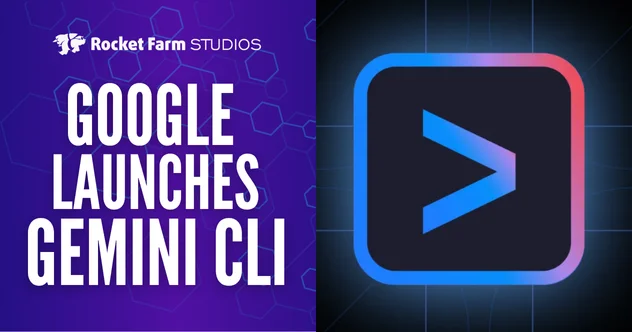Download our E-BOOK
What Are AI Agents?
July 29, 2025
by Daniel Rondeau
An AI agent is an autonomous software entity designed to observe, decide, and act toward a defined goal. It operates with a level of independence, using real-time data to make choices without requiring constant human input. Unlike traditional scripts or workflows, AI agents adapt to changing conditions, making them valuable for modern systems that require flexibility.
How Do AI Agents Work in Practice?
An AI agent operates through a feedback loop that connects input, decision-making, and action. While implementation can vary depending on the use case, most agents follow the same general structure:
1. Perception (Input Layer)
The agent collects data from its environment. This could be through sensors, APIs, logs, databases, or user input. In software-based agents, perception often means monitoring system state, user events, or data streams.
2. Interpretation (Processing Layer)
The agent analyzes the incoming data using logic, rules, or learned models. This is where context gets applied. For example, if the input is a stream of error logs, the agent may filter, classify, and prioritize them based on severity.
3. Decision-Making (Policy or Goal Layer)
The agent determines what to do next. Some use pre-defined rules. Others use reinforcement learning or utility functions to choose the most effective action based on past outcomes or performance objectives.
4. Action (Execution Layer)
The agent takes action within the environment. That could mean sending an alert, updating a dashboard, triggering another process, or communicating with another agent. The outcome of that action creates new data, which feeds back into the perception layer.
5. Feedback and Adaptation
Advanced agents monitor the impact of their actions. If outcomes are suboptimal, they can adjust their behavior through retraining, parameter tuning, or dynamic logic switching. This ability to adapt is what makes agents powerful in evolving environments.
In practice, AI agents often live inside microservices or modular components of larger systems. They are designed to be specialized, lightweight, and event-driven. This modularity makes it easy to scale horizontally, swap in new behaviors, or combine agents into coordinated systems.
What Types of AI Agents Exist?
AI agents differ not just in what they do, but in how they process information, evaluate options, and execute actions. Understanding these types helps product teams design agent-based systems with the right balance of complexity, adaptability, and performance.
1. Reactive Agents
These agents respond directly to stimuli from their environment. They do not store past information or maintain a model of the world. If condition A occurs, they execute action B. This simplicity makes them fast and reliable, but limits their ability to handle long-term strategy or multi-step reasoning.
2. Model-Based Agents
These agents maintain an internal representation of their environment. They can simulate outcomes, track changing variables, and make decisions based on predicted states. This makes them better suited for systems that require situational awareness or planning, such as simulations or diagnostics.
3. Goal-Based Agents
These agents evaluate different actions based on whether they move the system closer to a specific goal. Instead of always reacting the same way, they make decisions based on path selection and goal satisfaction. These are useful in dynamic environments where multiple routes or methods can achieve the same end.
4. Utility-Based Agents
These agents weigh outcomes not just based on reaching a goal, but on how valuable or optimal the result is. They use utility functions to prioritize one action over another based on efficiency, cost, risk, or other domain-specific metrics. This adds a layer of decision quality over basic goal pursuit.
5. Learning Agents
These agents improve over time by analyzing feedback from previous actions. They adjust their rules, models, or strategies through supervised learning, reinforcement learning, or even few-shot adaptation. This type is most powerful in changing environments or when scaling across varied tasks.
In modern systems, many agents combine these characteristics. A content generation agent, for example, might use a model-based approach to understand context, a goal-based system to determine tone or format, and a learning component to refine future outputs based on performance metrics.
What Can AI Agents Be Used For?
AI agents are already being deployed across industries to automate, enhance, and scale product operations. Their modularity and autonomy make them flexible enough to plug into almost any stage of a digital workflow. Below are practical examples of how product teams are using them.
1. Workflow Automation
Agents can handle routine, repeatable tasks such as triaging support tickets, updating CRM records, validating form submissions, or flagging errors in logs. Unlike traditional automation tools, agents adjust their behavior based on context and defined goals.
2. Data Enrichment and Analysis
Agents can fetch, clean, and enhance data from multiple sources before handing it off to another system or user. For instance, an agent might monitor a sales pipeline, retrieve firmographic data, and apply custom logic to tag or prioritize leads.
3. Continuous QA and Testing
Agents can run regression tests, monitor user flows, or evaluate new releases for visual or functional defects. Since agents operate independently, they can test in parallel across different environments without manual oversight.
4. DevOps and Code Optimization
Some teams use agents to analyze code for inefficiencies, enforce style guides, or recommend improvements. Others use agents to monitor infrastructure, manage cloud resources, or detect anomalies in deployment pipelines.
5. Content Generation and Personalization
In content-heavy products, agents can write, revise, or personalize copy based on user behavior or performance data. A simple use case is generating SEO metadata, but more advanced agents can create entire landing pages or product descriptions aligned with brand tone.
These examples only scratch the surface. As agent frameworks improve, product teams are beginning to treat them not just as tools, but as active collaborators within development, marketing, and operations stacks.
In Summary…
AI agents are transforming how complex systems operate. By combining perception, reasoning, and action into a modular structure, they allow for more adaptive, scalable workflows across data, development, infrastructure, and content operations.
Whether acting independently or as part of a multi-agent system, these agents bring flexibility and speed to tasks that once required static logic or manual oversight.
If you’re interested to see how we can apply AI agents into real product environments, visit our AI Agent solutions page.
Some Additional Questions About AI Agents
A chatbot interacts with users through conversation. An AI agent performs autonomous tasks, often behind the scenes, based on goals and system inputs.
Not always. Some use rule-based logic, while others use models or reinforcement learning depending on complexity.
Yes. Multiple agents can be coordinated into a system to handle complex workflows or multi-step tasks.
APIs expose functions, while agents decide when and how to use those functions to achieve a goal.
It depends on the use case. Python is common for prototyping, while production systems often use event-driven architectures with tools like LangChain, FastAPI, or cloud-native functions.
Agents can be configured with logging, constraints, and feedback loops. Observability is key for maintaining safety and performance.
Yes. LLMs can help draft logic, write code, design decision trees, simulate agent behavior, or even act as agents themselves in orchestration frameworks.
Ready to turn your app idea into a market leader? Partner with Rocket Farm Studios and start your journey from MVP to lasting impact.”
Related Blogs
Download Our Free E-Book
Whether you’re launching a new venture or scaling an established product, Rocket Farm Studios is here to turn your vision into reality. Let’s create something extraordinary together. Contact us to learn how we can help you achieve your goals.




